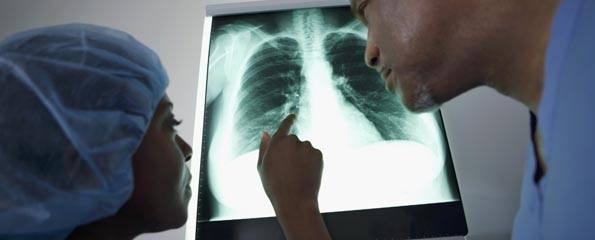Australia needs to wise up about lung cancer
The Australian Lung Foundation launches a confronting lung cancer awareness campaign. Every year, lung cancer kills more than 7500 Australians, which is more than 20 people each day. The new campaign aims to highlight the impact of this silent killer, that nobody wants to talk about, and encourages Australians to stand up, use their voice and ‘End the Unspoken’.
End The Unspoken will highlight the extent of lung cancer which is Australia’s biggest cancer killer and kills more people than Breast, Ovarian and Prostate Cancer combined. The Lung Foundation urges Australians to visit the website “endtheunspoken.com” and show their support by sharing the message and putting an end to the silence associated with this disease.
Recent research commissioned by the Global Lung Cancer Coalition found that Australian adults think breast cancer is the biggest cancer killer, followed by skin cancer with a small minority able to rate the cancers in order of their impact. This highlights the misconceptions present throughout Australia. The worldwide study found that most other countries believe lung cancer is the biggest cancer killer.
Tropfest winner and director of End the Unspoken, Jason van Genderen has been personally affected by lung cancer as his father passed away late last year from the disease. “I have seen, first hand, how aggressive this cancer is and I hope ‘End the Unspoken’ can raise awareness about this deadly disease,” said Mr van Genderen.
“One in 16 Australians will develop lung cancer before they’re 85 yet it is a topic which is rarely spoken about. Perhaps this is because of the stigma which is attached to lung cancer?” said Mr van Genderen.
Victoria Taber is a 31 year old lung cancer survivor from Canberra. She has never smoked however a chest x-ray, for a routine medical check before an overseas trip, found a tumour in her left lung. “I never had any symptoms but was diagnosed with lung cancer and have since had my left lung removed and been treated with both chemotherapy and radiation,” says Ms Taber.
The lung cancer survivor believes it is vital that lung cancer awareness is increased and wants people to be aware that lung cancer is not just a smokers’ disease. “I’m living proof that lung cancer doesn’t discriminate – it affects males and females, the old and the young, smokers and non-smokers – and is the most deadly cancer in Australia. I was so lucky to have been diagnosed early enough so doctors could operate and save my life,” Ms Taber said.
Lung Foundation board member Professor Matthew Peters said the Lung Foundation was impressed by the passion of all involved in this project and hopes that many Australians will now see and understand lung cancer for what it is. “Cancer of the lung cannot be seen or felt – it is hidden. Symptoms are vague but include persistent cough, coughing up blood, breathlessness, chest pain, fatigue or sudden weight loss. Tobacco remains the highest risk factor for lung cancer however other factors include exposure to asbestos, particulate air pollution and some other occupational triggers,” said Professor Peters.
“End The Unspoken correctly conveys the message that lung cancer is Australia’s biggest cancer killer and that we need your support. It is my hope that the launch of this first lung cancer awareness community service announcement will be a watershed moment and that the community will understand the scope of the problem and the urgent need for resourcing for research and clinical care to be raise to the level of the other common cancers,” said Professor Peters.
“Anyone can check their lung health by completing the Lung Foundation’s lung health checklist on our endtheunspoken.com website,” said Professor Peters.
(Source: Australian Healthcare & Hospitals Association)
More information
 | For more information on cancer, including breast, prostate, kidney and stomach cancer, see Cancer: Overview. |
Dates
Tags
Created by:

 Login
Login














